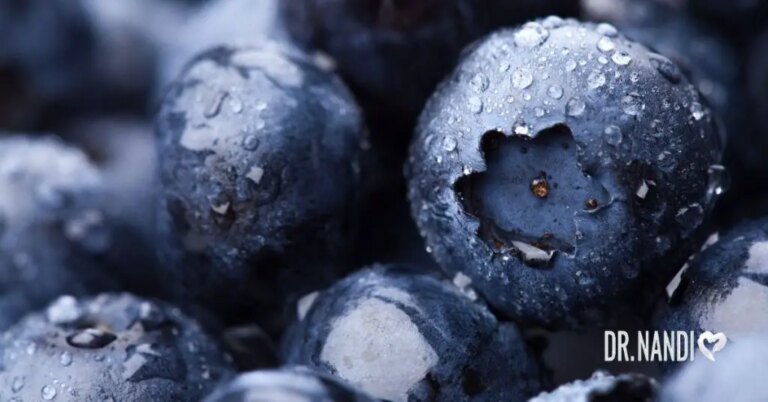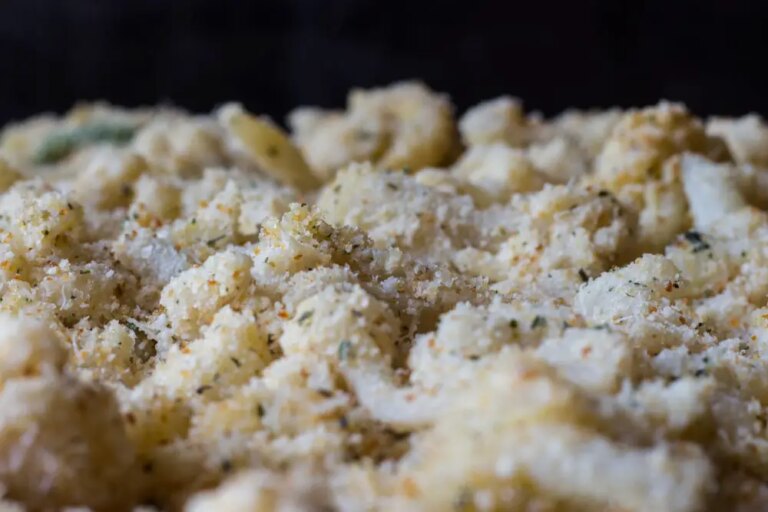One of life’s most common food battles is the fight against eating too many sugary foods. Finding the courage to turn down the donuts, cookies, candy, or desserts to comply with your nutrition plan, cut back a few pounds, or simply appease your loved ones is difficult. I’ve heard the struggle from many of my patients and from my own experience.
In this never-ending battle, there’s nothing more appealing than hearing the two little words, “sugar-free.” Whew! A delicious-looking treat you can indulge in guilt-free! Or can you? If the triple chocolate mousse brownie doesn’t have sugar, why doesn’t it taste like a brick? What kind of sweetener is involved, and is it better or worse for my health?
There are many misconceptions about the best sweeteners or sugar substitutes, and I’ve heard them all. So I want to clear up all the confusion and give you an honest rundown on the best and worst sweeteners to help you avoid the extra calories and which are best to avoid at all costs.
What Are The Best Sweeteners?
There should be a limit to how much sugar and sweeteners you eat, but I’ve found some sweeteners to be safe and better than others when it comes to nutrition. So, let’s get started.
Stevia
Yes, stevia makes the top of the list, and it is number one on my list for many reasons. Stevia is a natural substitute made from the leaves of the stevia plant. Stevia extract contains no sugar or calories, has anti-inflammatory and anti-tumor properties, and doesn’t raise blood sugar levels. Stevia has been found to assist with glucose regulation. Research has also shown that stevia cultivation and production conserves more energy than any other sweetener, which is simply a bonus. A natural sweetener and good for the environment sounds like a win.
I recommend stevia for those patients who ask for an alternative to sugar as it is the best sweetener for everyone. Especially for people with diabetes or sticking to a low-calorie diet, stevia is the best option.
Honey
Honey is another sweetener with excellent benefits. It’s an even blend of glucose and fructose; it’s anti-bacterial, anti-inflammatory, and an excellent antioxidant. Honey is beneficial for many medicinal purposes, such as soothing a sore throat or cough, relieving stress, or even helping sleep more soundly. Although honey is high in carbs and calories, it is more of an actual food than sugar is, and the benefits can outweigh the excess calories.
It is also good to keep in mind that not all honey is created equal. There are many different qualities of honey. Higher quality, organic raw honey will be healthier and more beneficial than more processed brands that include added sweeteners.
Dates
Dates are next on my list, another fantastic and healthy food that serves as a sweetener. Dates are great because you can buy them whole and blend them into a paste, or they can also be purchased as syrup. Dates contain many essential nutrients, including vitamin B6, copper, iron, potassium, manganese, and magnesium. It is also an antioxidant, anti-inflammatory, gastroprotective, overall a high-energy food source, and an amazing source of minerals. I consider it one of the ideal foods.
Coconut Sugar
Coconut sugar is made from coconut tree sap and is mostly sucrose with included nutrients and minerals such as inulin, potassium, magnesium, potassium, and prebiotic fiber. Coconut sugar is less processed than other sweeteners because the sap is essentially extracted and placed in heat to dry. It is still a high-calorie sweetener, so that should be considered.
Maple Syrup
Pure maple syrup goes through minimal processing, making it an excellent natural sweetener. After extracting the sap from the maple tree, the only processing is boiling to evaporate any excess water, and then a filtering process to take out any sediment. Maple contains calcium, potassium, zinc, calcium, and magnesium. Although maple syrup has a distinct flavor that may not mix well with all recipes, it’s a sweetener I recommend. It’s worth a try.
Raw Cane Sugar
Raw cane sugar is your regular table sugar, just not as processed or refined. Raw cane sugar is extracted from the sugar cane plant and retains some molasses and moisture from the plant, so you consume less sugar and calories per serving. While sugar cane does have significant benefits, including anti-inflammatory properties, antioxidant activity, and cholesterol-lowering abilities, most of these benefits are lost in the processing.
Brown Sugar
Brown sugar is made from some of the molasses that has been leftover from the refining process of sugar cane. These molasses are added back into the sugar after being completely processed, where the darker color comes from. It’s a step above your regular table sugar simply because the molasses contain minor amounts of trace nutrients completely stripped from table sugar. However, the remaining nutrients are not enough to be of any benefit.
Brown Rice Syrup
Brown rice syrup is made of brown rice that has been fermented and heated until it forms a syrup. The fermentation process breaks down the sugars, making them easier on the digestive system. Keep in mind that if the syrup is fermented with barley, it does contain gluten. So keep an eye out for that if you’re on a gluten-free diet. It also has a high glycemic index and has been linked to obesity and other diseases.
A recent study also showed that some products sweetened with brown rice syrup contained traces of arsenic, but this would only be harmful if taken in large doses. It is most dangerous for children, so I recommend carefully checking labels and helping your children avoid it as much as possible.
Monk Fruit Extract
Monk fruit extract is a newer sweetener on the market and one that I recommend. It comes from a small green melon-like fruit grown in Southeast Asia. The extract is 150-200 times sweeter than table sugar but does not affect blood sugar levels.
Refined White Sugar
And finally, we get to the classic refined white sugar. Although it hasn’t made it to the naughty list, I consider it the least beneficial of all the good sweeteners.
Granulated white sugar is your regular table sugar. It is generally made from sugar cane or sugar beets. It does have the mildest flavor of all sweeteners, and it blends easily, making it ideal for baking or beverages. It’s generally the most available and common type of sugar, but it’s also the most refined and chemically processed. Too much of this type of sugar has been linked to many gastrointestinal disorders.
What Are The Worst Sweeteners?
Agave
Agave is a common sugar substitute that most don’t realize can be worse than table sugar. Agave can get almost 90% fructose, which is more than you need to deal with. It’s most often found in syrup form and is sweeter than table sugar. Although agave may have a lower glycemic index than your regular table sugar, this little fact isn’t enough to redeem its other negative points.
Aspartame
Aspartame is an artificial substitute that is sugar-free and non-caloric, found most often in diet sodas. This sweetener is made entirely of chemical compounds and can’t be considered food. It is on EPA’s list of potential carcinogens and could be linked to a risk of leukemia.
Splenda
Splenda is very similar to aspartame in that its sugar-free non-caloric and made of chemical compounds. It’s essentially sucralose. Studies have found that it has “numerous adverse effects,” including altering and reducing the beneficial bacteria in your gut, increasing the acidity of your digestive tract, and decreasing absorption of certain nutrients and medications.
High-Fructose Corn Syrup
You may have heard high-fructose corn syrup described as a natural sweetener; don’t believe it. Corn syrup is produced from genetically modified corn and is last on my list of sweeteners for a reason. It has many adverse effects, such as being harmful to the metabolism, can cause early aging, and liver disease, and has also been linked to increased risk of obesity. Although it can be tricky to avoid in today’s world, where corn syrup has grown so prevalent, the best rule of thumb is to stay as far away from it as possible.
Artificial Sweeteners
I always recommend avoiding artificial sweeteners as they can be more harmful than helpful. They are all made of chemicals, some of which have been linked to cancer. If you must use an artificial sweetener, I recommend using stevia or monk fruit extract in moderation.
Conclusion
Now that you have a defined list of sweeteners and sugar substitutes, ranked from best to worst, you know what to look for when checking your food labels. This list shouldn’t give you the liberty to go out and consume all the stevia, honey, and dates you want. Everything is better in moderation, as even the healthiest of foods are most effective when balanced with other wholesome foods that work together to make a healthful diet. So keep the sweets to a minimum, maintain their rank in mind, and you’ll soon be able to navigate the sweetener world with ease.
References:
- Antioxidant Activity as Biomarker of Honey Variety – PMC (nih.gov)
- Honey: A Potential Therapeutic Agent for Managing Diabetic Wounds – PMC (nih.gov)
- Glucitol-core containing gallotannins inhibit the formation of advanced glycation end-products mediated by their antioxidant potential – Maple (uri.edu)
- Total antioxidant content of alternatives to refined sugar – PubMed (nih.gov)
- The effect of date versus sugar on sensory, physicochemical, and antioxidant properties of ice cream – PMC (nih.gov)
- (PDF) 079: CHARACTERIZING COCONUT SAP SUGAR AND SYRUP AS A PROMISING FUNCTIONAL FOOD/INGREDIENT (researchgate.net)
- Stevia (Stevia rebaudiana) a bio-sweetener: a review – PubMed (nih.gov)
- The antioxidant activities of natural sweeteners, mogrosides, from fruits of Siraitia grosvenori – PubMed (nih.gov)
- The relation between rice consumption, arsenic contamination, and prevalence of diabetes in South Asia – PMC (nih.gov)
- Effect of Fructose on Established Lipid Targets: A Systematic Review and Meta‐Analysis of Controlled Feeding Trials | Journal of the American Heart Association (ahajournals.org)
- Additional Information about High-Intensity Sweeteners Permitted for Use in Food in the United States | FDA
- randomized controlled trial contrasting the effects of 4 low-calorie sweeteners and sucrose on body weight in adults with overweight or obesity | The American Journal of Clinical Nutrition | Oxford Academic (oup.com)











 Subscribe to Ask Dr. Nandi YouTube Channel
Subscribe to Ask Dr. Nandi YouTube Channel









